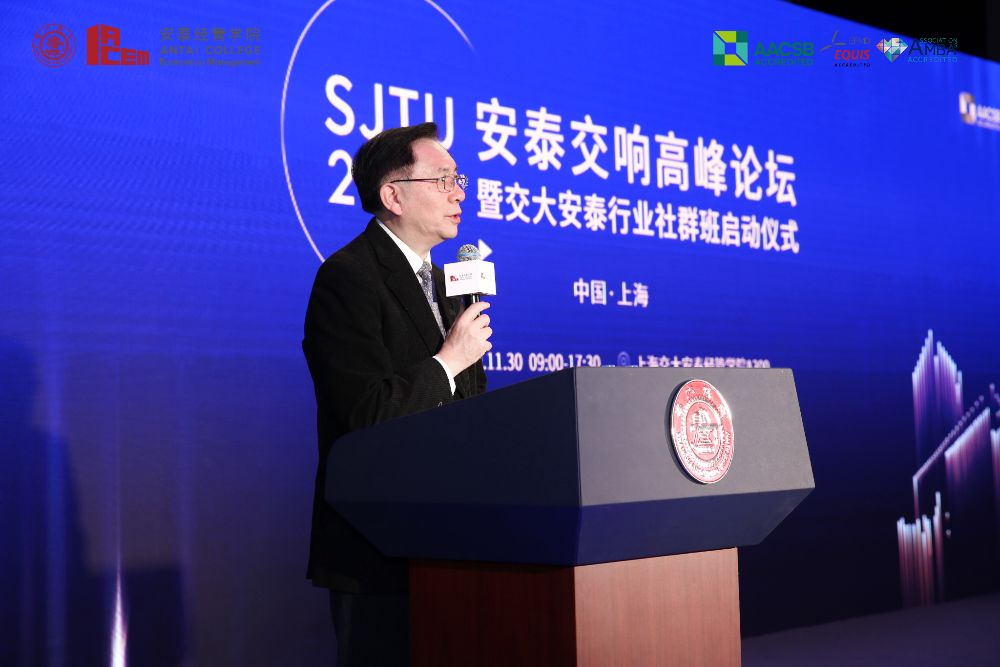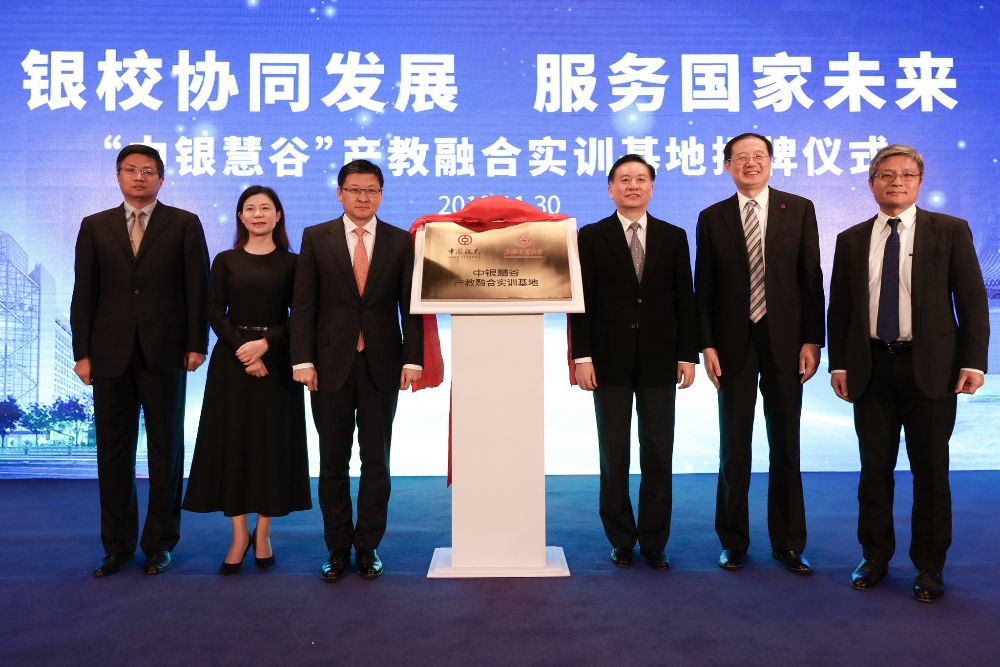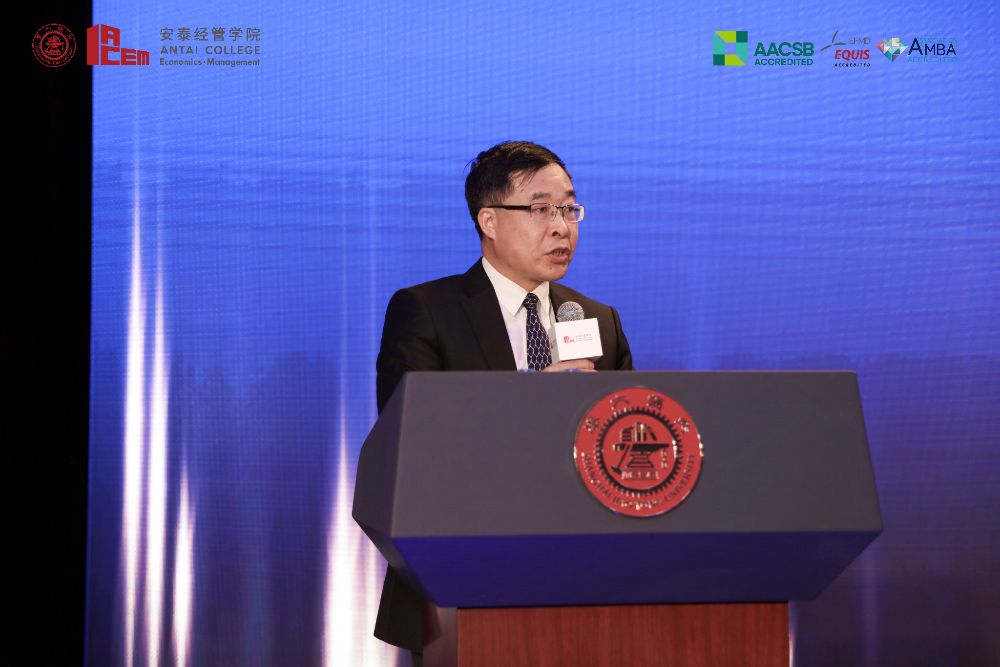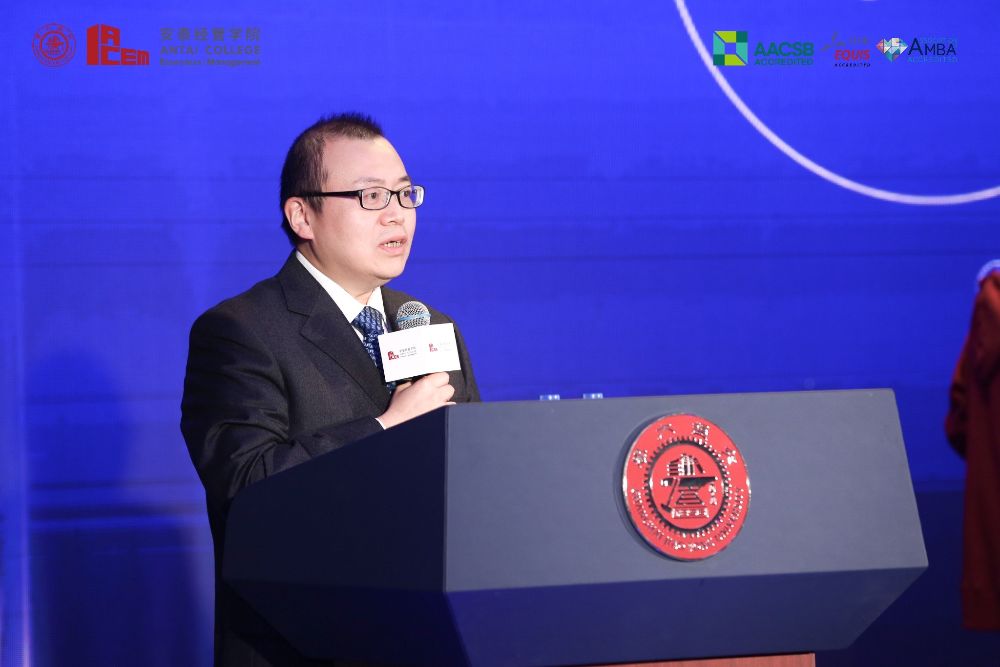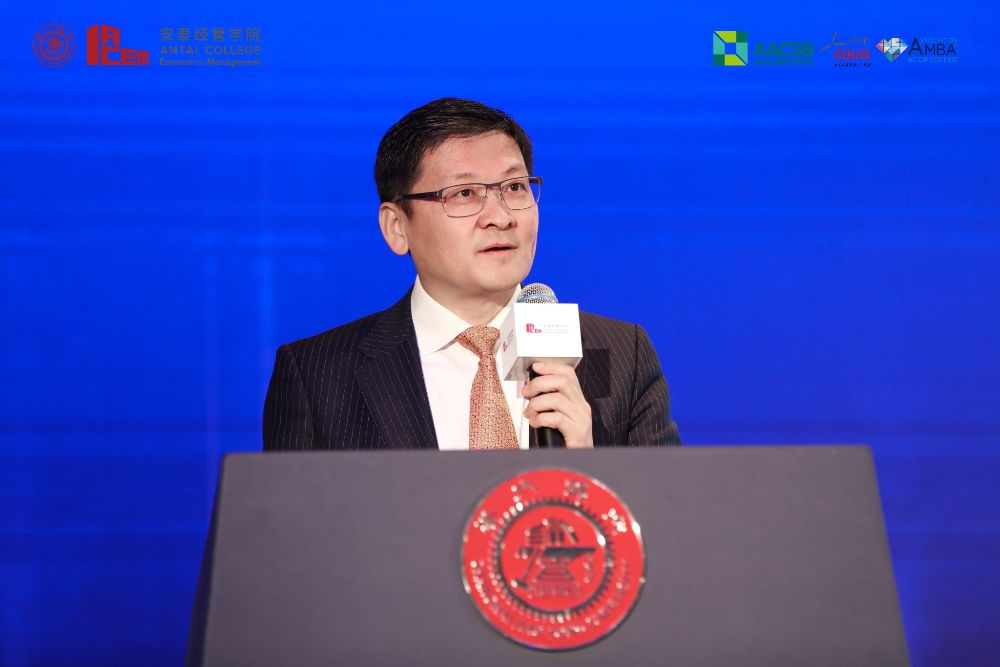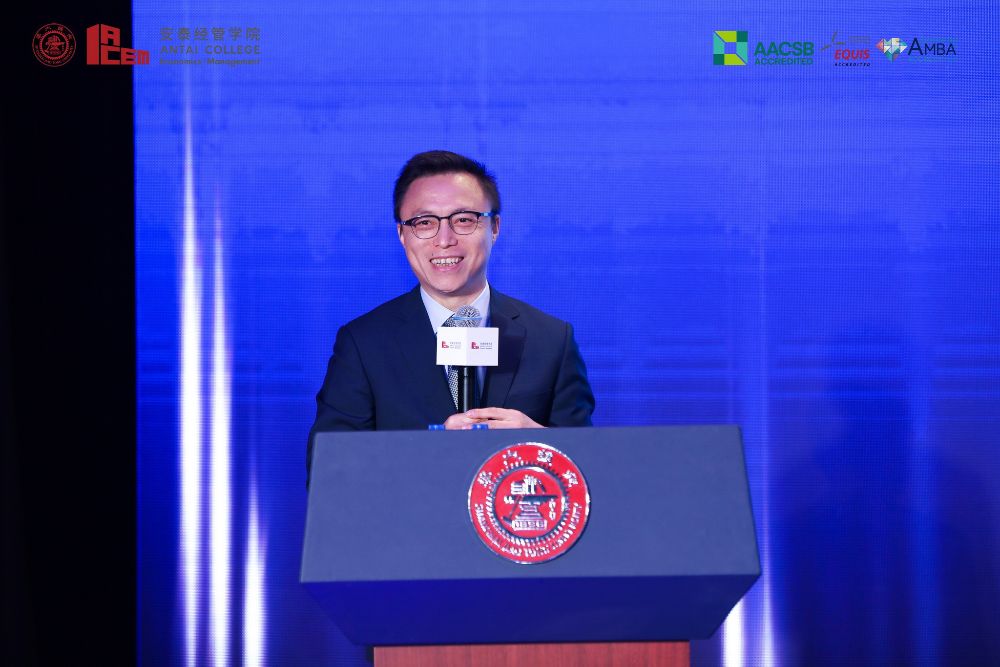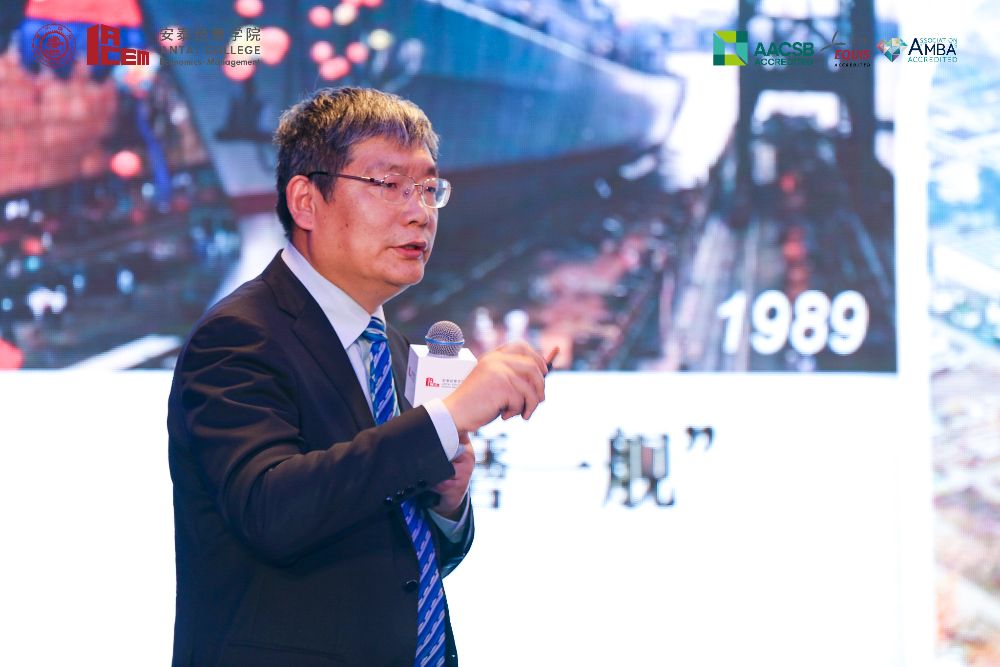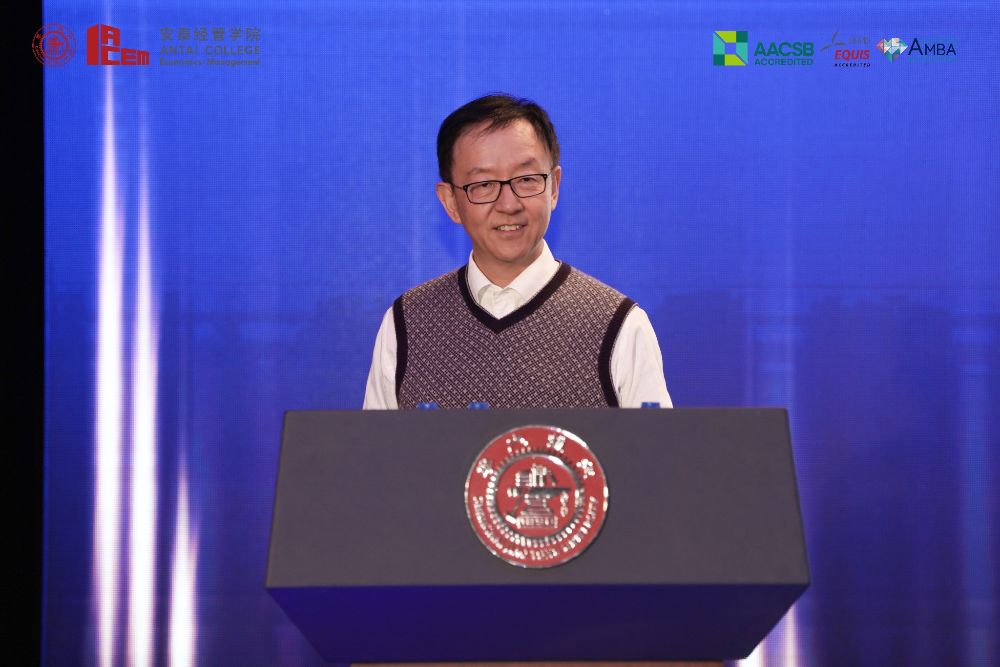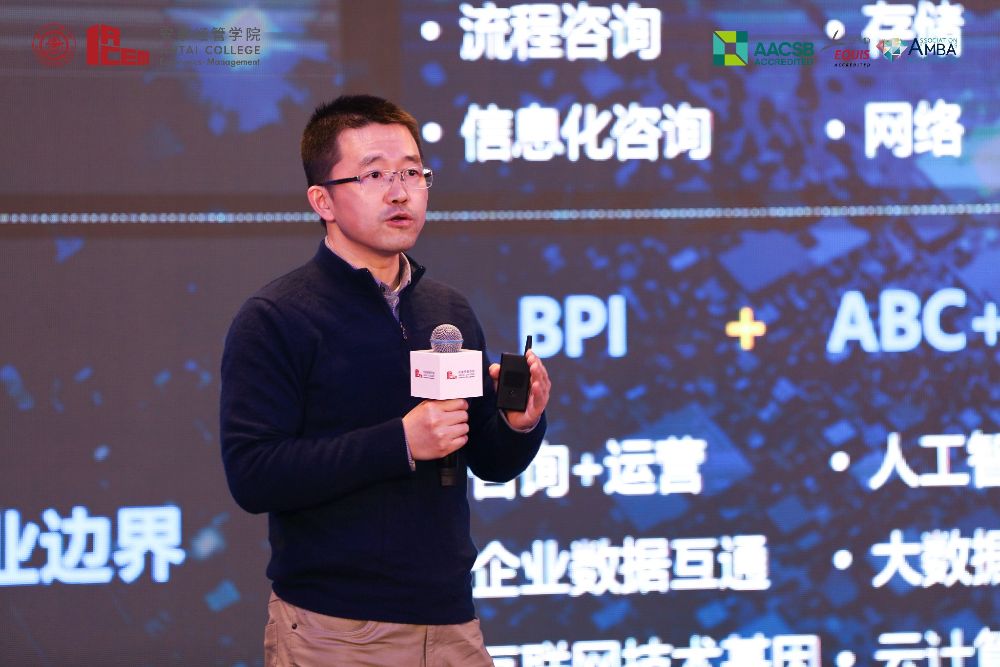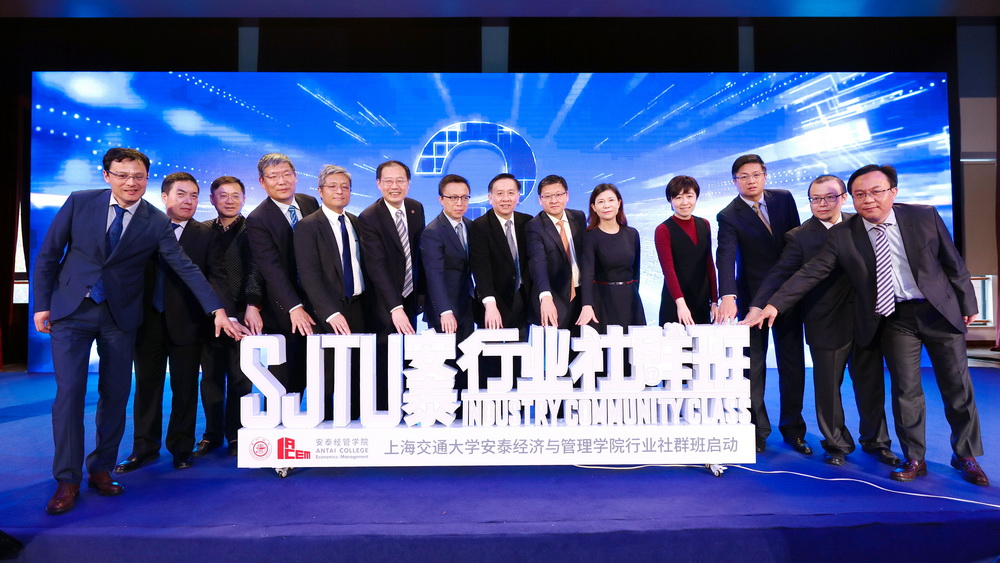“Antai Symphony” Summit Forum successfully held and ACEM Industry Community Class officially launched
Publisher : MBA Office Dec.02,2019
In 2019, with the challenges faced by globalization, the Fourth Industrial Revolution driven by technology, and the new investment opportunities driven by digital economy, China and the world are heading for a new cycle of economic and social development, steering the situation and empowering to challenge the game. On Nov. 30, the “Antai Symphony” Summit Forum of SJTU and the launching ceremony of ACEM Industry Community Class were grandly held in Xuhui Campus.
Business economy is the best window to observe the changes of the times. Not only it is the growth history of a particular company, but more importantly, we can see the evolution of every different vertical industry, and the reform of business education and business schools also needs proactive exploration. The forum focused on the three major areas of FinTech, innovation and entrepreneurship, and automotive ecology to feel the true temperature of the Chinese economy.
Jiang Sixian, Secretary of the Party Committee of SJTU, stated in his speech that the main feature of a first-class university is its high-level experts, scholars and scientific achievements, as well as its rich talent reserves, while a first-class company has senior industry leaders and business elites, being the subject of market, demand and investment. Innovation-driven is essentially talent-driven, and technological innovation and innovation of education model are closely related and mutually promoted. Pioneering exploration oriented to industry development practices has provided a good opportunity and platform for the transformation and development of business schools in the new era, and will also promote qualitative improvement and leap in various industries.
On the day of the event, Jiang Sixian, Secretary of the Party Committee of SJTU, and Sun Yu, Vice President of BOC, jointly unveiled the “BOC-SJTU - BOC Intelligent Valley Training Base for Industry and Education Integration”, which serves as an industrial backup. Gu Feng, Deputy Secretary of the Party Committee of SJTU, and Rui Xiongwen, Vice President of Ant Financial, signed a strategic cooperation framework agreement on behalf of the two parties, launching in-depth cooperation on talent training and academic research. In addition, ACEM signed a strategic cooperation agreement with BOC Shanghai.
Xi Lifeng, member of the Standing Committee of the Party Committee and Vice President of SJTU, stated in his speech on the afternoon of the forum that business schools should build an interdisciplinary, inter-organizational and cross-industry ecosystem, strengthen the combination of theory and practice, strengthen the feedback of industries to teaching and research, and promote the industry-university integration.
Chen Fangruo, Dean of ACEM, believed that business schools worldwide are facing the problem that theory and practice cannot be effectively combined, and top business schools in the world have been carrying out various reforms but have rarely solved the fundamental problem. ACEM hopes to establish another knowledge-creating vertical model based on the horizontal discipline orientation: carrying out industry-oriented in-depth research, and then creating a new knowledge-creating atmosphere and healthy ecology with “crisscrossed development and unity of knowledge and action”.
As the host of the event, Yang Jie, Secretary of the Party Committee of ACEM, suggested that business schools need to get out of the ivory tower and cooperate and interact more with industries. While redefining academics, they must serve industry practices and align with the national strategy of industry upgrade. Studying future issues and developing future leaders with future-oriented dreams is an important starting point for ACEM to explore industry research and have deeper cooperation with industries.
As the guest moderator of the forum, Liu Shaoxuan, Associate Dean of ACEM, emphasized that the talent training in the future must be featured by a compound training model that develops both management-oriented technology talents and technology-oriented management talents. The launch of ACEM Industry Community Class will provide ACEM and its alumni with a path for deep evolution of the supply and demand pattern in a cross-school, cross-program, cross-disciplinary and cross-industry-university-research way, and through the same frequency dialogue between the industry and alumni, so as to share and build a win-win ecology and stage. It marks that ACEM’s concept of industry research is being incorporated into the curriculum system.
Subsequently, the forum focused on the field of FinTech. Sun Yu, Vice President of BOC, and Eric Jing, Chairman of Ant Financial, gave wonderful keynote speeches on how the Chinese economy adjusts itself and maintains a stable and favorable situation in a conversion period.
Sun Yu mentioned in his speech that the development of FinTech in the future shows three trends. Firstly, important breakthroughs have made in many FinTech applications, effectively promoting the disruptive innovation and reshaping of financial services. Secondly, the industry structure has changed from co-opetition to win-win integration. Thirdly, regulators are also working to embrace FinTech. FinTech has promoted the continuous transformation of financial institutions. On the one hand, financial institutions will add in more tech-savvy talents, and on the other hand, financial institutions will need more “technology-oriented” managers.
In Jing’s view, mobile payment has a huge impetus for the development of China’s digital economy. The mobile terminal has become not only a payment tool, but also a platform for merchants to operate a variety of local life services. Technology will bring more opportunities to the world for equal development. At present, every small and micro enterprise can basically provide three jobs, so providing them with good services has very important social significance. Finance in the future is definitely intelligent and personalized, and innovation will be needed from the supply side.
In the innovation and entrepreneurship sector, Lin Ou, Chairman of Jiangnan Shipyard Group; Wu Jiong, founder of Fenghe Group and angel investor of Alibaba; Yin Shiming, Vice President of Baidu; Wang Junhao, President of Juneyao Group, shared their unique views on more innovative, disruptive and strategic new enterprises and new business formats that will be created in the innovation and entrepreneurship industry.
Lin Ou believed that, for the transformation of traditional equipment manufacturing, strategy determines the future and innovation leads the development. From the innovation of the construction model, he talked about the change of the management model and proposed that the modern shipbuilding model depends on technological progress and innovation, which will drive the innovation of the management model and promote the overall development of the industry by combining the two aspects.
Wu Jiong shared his thoughts on investment in technological projects as an investor. Technological entrepreneurs with entrepreneurship will play a constructive driving role in more fields. In the foreseeable ten years in the future, medical health has huge industrial potential and may surpass the IT industry and become the largest sector in the innovation and entrepreneurship field.
Yin Shiming proposed that new applications of AI will change the status of many existing industries, involving smart customer service, smart quality inspection and smart cities. He expected and firmly believed that the industrialization of AI will be gradually achieved in the next five years.
Wang Junhao introduced that what he had been pursuing was not to be fashionable, but to be dedicated to filling international and domestic gaps in the high-tech industry. The entrepreneurial spirit of Chinese entrepreneurs should be about entering an industry and being world-leading, and daring to redefine world standards.
In the critical period of structural adjustment of the automobile industry, where will the future lead to and where is the new prospect? Yao Jie, Deputy Secretary-General of China Association of Automobile Industry; Zheng Xiancong, co-founder of NIO and Chairman of NIO Power Technology; Yao Junhong, founder and CEO of souche.com; Mao Limin, President of Infiniti China, faced the cold winter of the automobile industry and made simple but profound analysis.
Yao Jie believed that the automobile industry will usher in a reshaping, from the current traditional automobile business format into a new ecology that will be related to the network, cloud, invisible control technology, and cloud information in different fields. Like a mobile phone switched on and connected to the network, a future car may not be able to drive without accessing the network.
In Zheng Xiancong’s view, the core of the auto industry is to serve consumers well. He hoped that the industry could provide users with the best services, and auto companies would make money by spending money in the right place, so that users could have better and sustainable development.
Yao Junhong said that the essence of business is to achieve asset exchange through connections and agreements. Souche.com is actually a company that hopes to turn the field of automobile circulation into a convention and a platform in the virtual space. Through system coverage, the company helps improve the internal connection efficiency of automobile retail stores, and at the same time digitize all transaction assets so that users can enjoy real quick and efficient service experience.
Mao Limin shared how to build a new relationship between people and automobiles through intelligence and sharing in the construction of smart cities. He believed that auto companies must not forget the original intention of manufacturing automobiles, and before the arrival of L5, too much information and too many screens are not only useless, but also harmful and dangerous.
At the event site, the Industry Community Class focusing on the three areas of FinTech, innovation and entrepreneurship, and automobiles were officially launched and unveiled on a pilot basis. Participants of the Industry Community Class consist of students from the MBA, EMBA, Executive Education and DBA programs. The class will provide participants with value-added services and build industry classes on the basis of the original administration class, which means that each student will study in two classes concurrently. Through continuous iteration, improvement and upgrade the Industry Community Class will be expanded to other industries in the next semester.
ACEM is committed to changing the model of business schools through industry research, and delivering the most fresh industry wisdom to various industries on the basis of research in horizontal disciplines, giving play to the integration and interaction role of the academic circle and the industries, exploring the balance between “practice” and “theory”, and creating a healthy and broad new ecosystem for business schools. The grand launch of the Industry Community Class at the event is also a solid step of ACEM’s strategy of “crisscrossed development and unity of knowledge and action”.



